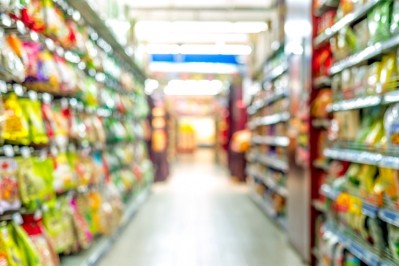Iceland becomes the first UK retailer to cut palm oil from own-brand range

The retailers revealed immediate plans to remove the ingredient from half of the food from its own-label products.
By the end of the year, Iceland said it would reformulate 130 food products to remove palm oil across its 900 stores reducing its demand by more than 500 tonnes per year.
"Until Iceland can guarantee palm oil is not causing rainforest destruction, we are simply saying 'no to palm oil',” said Iceland’s managing director, Richard Walker.
“We don't believe there is such a thing as 'sustainable' palm oil available to retailers, so we are giving consumers a choice about what they buy."
Iceland said it would replace palm oil with oils and fats that “do not destroy the rainforest”, adding its work with suppliers would ensure recipe changes did not impact product cost or taste.
Products subject to this treatment would display a 'no palm oil' sticker on its packaging.
The palm oil price
Palm oil is one of the world's biggest causes of deforestation and poses a significant threat to a number of species already facing extinction.
In Indonesia and Malaysia, where palm oil and wood pulp plantations are the biggest drivers of deforestation, many species are being threatened with extinction, including the orang-utan.
The orang-utan population has more than halved in the last 15 years and is now critically endangered with only 70,000 to 100,000 individuals remaining.
Whist’s Iceland’s move was met with approval on social media channels, The Roundtable on Sustainable Palm Oil (RSPO), the world’s largest palm oil certification scheme, said it did not agree with the solutions Iceland were adopting.
“We fully share Iceland’s concerns about the environmental impact of palm oil, said Darrel Webber, RSPO’s CEO.
“Before getting rid of palm oil, we should ask ourselves, what is the impact of the alternatives? We should let consumers know that palm trees produce 4 to 10 times more oil per hectare than any other oil crop.
“What if we were to discover that palm oil is replaced by butter from cows fed with unsustainable soy grown at the expense of Amazon forest instead?”
Webber argued that eliminating palm oil production might lead to the use of more land with higher risks of deforestation.
“If Iceland want to guarantee that their oils and fats sourcing is not causing rainforest destruction, they should work with the rest of the supply chain to promote the use of sustainable standards, such as RSPO, with a view to improve the sustainability of the entire market,” he added.
Palm oil replacement issues
Webber’s comments mirror those outlined in a 2016 World Wildlife Fund (WWF) report that stated, “The one-to-one substitution of palm oil with other tropical plant oils would not meet the desired objectives.
“Soya and coconut oil grow in similar or ecologically similarly sensitive regions, and therefore the replacement of one oil for another would not solve the problem but only shift it elsewhere and, in part, even exacerbate it.
“More land would be required, more greenhouse gas emissions would be generated, and more species would be endangered.”
Iceland’s move away from palm oil use now puts the pressure on other UK supermarkets to follow suit and say no to the damaging effects of palm oil production on the environment.
Sainsbury’s acknowledged that some of its products contained palm oil, with over 98% of its own brand products certified sustainable in 2016.
Meanwhile Tesco also referred to a 99% RSPO certification of its UK products with plans in place to ensure the final remaining 1% transitions to a physical supply chain of certified sustainable palm.
“This is predominantly within our non-food products range where physical supply chains for complex derivatives continue to be more challenging to establish,” it said.
John Sauven, executive director of Greenpeace UK, said “Iceland has concluded that removing palm oil is the only way it can offer its customers a guarantee that its products do not contain palm oil from forest destruction. This decision is a direct response to the palm oil industry’s failure to clean up its act.
“As global temperatures rise from burning forests, and populations of endangered species continue to dwindle, companies using agricultural commodities like palm oil will come under increasing pressure to clean up their supply chains.
"Many of the biggest consumer companies in the world have promised to end their role in deforestation by 2020. Time is running out not just for these household brands but for the wildlife, the climate and everyone who depends on healthy forests for their survival.”
























